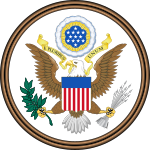
I was talking to an anthropologist yesterday about his work on corruption in Russia. A couple weeks before we'd both been to a lecture by Harvard Law Prof. of Ethics Lessig on corruption in the US. Lessig said that accepting money for votes was bad but legal. I asked Lessig if US Representatives had employment contracts with the government. He said yes. Then, I said, they certainly are guilty of breach of contract, not to mention treason, in working for someone else against the interest of their government employers, and could be sued. Lessig didn't answer immediately. Then said he didn't think the courts would agree. I said then the judges probably also were also making decisions after taking money for their election campaigns, and guilty of breach of contract.
The anthropologist expressed his doubts. Why did Lessig say money for voting was legal? I said, because the Supreme Court claims campaign donations are free speech, and there was no law explicitly making it illegal. In his paper on Russian corruption he'd explained how the legal system was used against legality. This worked, I said, by the trick of finding at least two rules or laws that could be applied to the case at issue, then choosing to apply the wrong rule, the rule that favored the private interests the legal authority is influenced by. Laws, wrongly or rightly applied, were still laws, so the illegality is hidden. The American courts, with regard to bribery of representatives, just like in Russia were applying the wrong law and so hiding the illegality.
Why then was no one suing the representatives? the anthropologist asked.
Because, I said, it is expensive and dangerous. I told him of my experience in suing Starbucks*, which was a kind of joke, but resulted in serious (on their part) threats made against me by their lawyers.
And also, I continued, because the illegality is so completely hidden: Lessig and the rest don't appear to know they are doing anything wrong. For a right rule to be chosen, the "State of Exception", the legal suspension of civic freedom in a state of emergency, has to end. When the government works only to protect itself, and the freedoms that make good life possible are excluded, there is no human basis on which to decide between rules. The government is no longer a tool used to make life better for its people. It acts only to protect itself. Decisions are constrained only by the necessity of preventing imbalances of interests and consequent weakness that might endanger the state, puts it at risk of revolution or invasion. Outside of this requirement, choice of what rule or law to apply is free.
The corruption of "the wrong rule" arises when Representatives and judges realize this, that there really is no right rule, no world in which making the right decision has any real effect. It is reasonable on their part to give their vote to people who can give something back, where there is a kind of functioning community, the interest or mafia they ally themselves with. Because interest serving is a form of community building, it seems a kind of altruism. Eichmann explained this at his trial in Jerusalem. He said he considered himself an unselfish idealist because he did as well as he could the only job he could, that expressing his humanity was futile in the emergency circumstances of the war. He chose the wrong rule to live by because it was the best choice to make under the circumstances.
I've just read here that AEG is suing the US Government for failing to bail them out.
Anyone interested in the project of suing for breach of contract all the U.S. Representatives who have taken money for votes?
______________________
* Let's Sue Starbucks, and Sue Them All
P.S. University Of California at Davis Chancellor Katehi says the University Police acted in accordance with standard procedures in the November 18th pepper-spraying of students. There needs to be a balance between public safety and freedom of expression and assembly, she argued. Public safety, threatened by students sitting down on the pavement of the campus quad, was more important.
Obama: "One of the biggest problems about the collapse of Lehman's and the subsequent financial crisis and the whole subprime lending fiasco is that a lot of that stuff wasn't necessarily illegal. It was just immoral or inappropriate or reckless." Bribing government officials to remove laws protecting against "immoral, inappropriate, reckless selling of bad investments" is illegal.